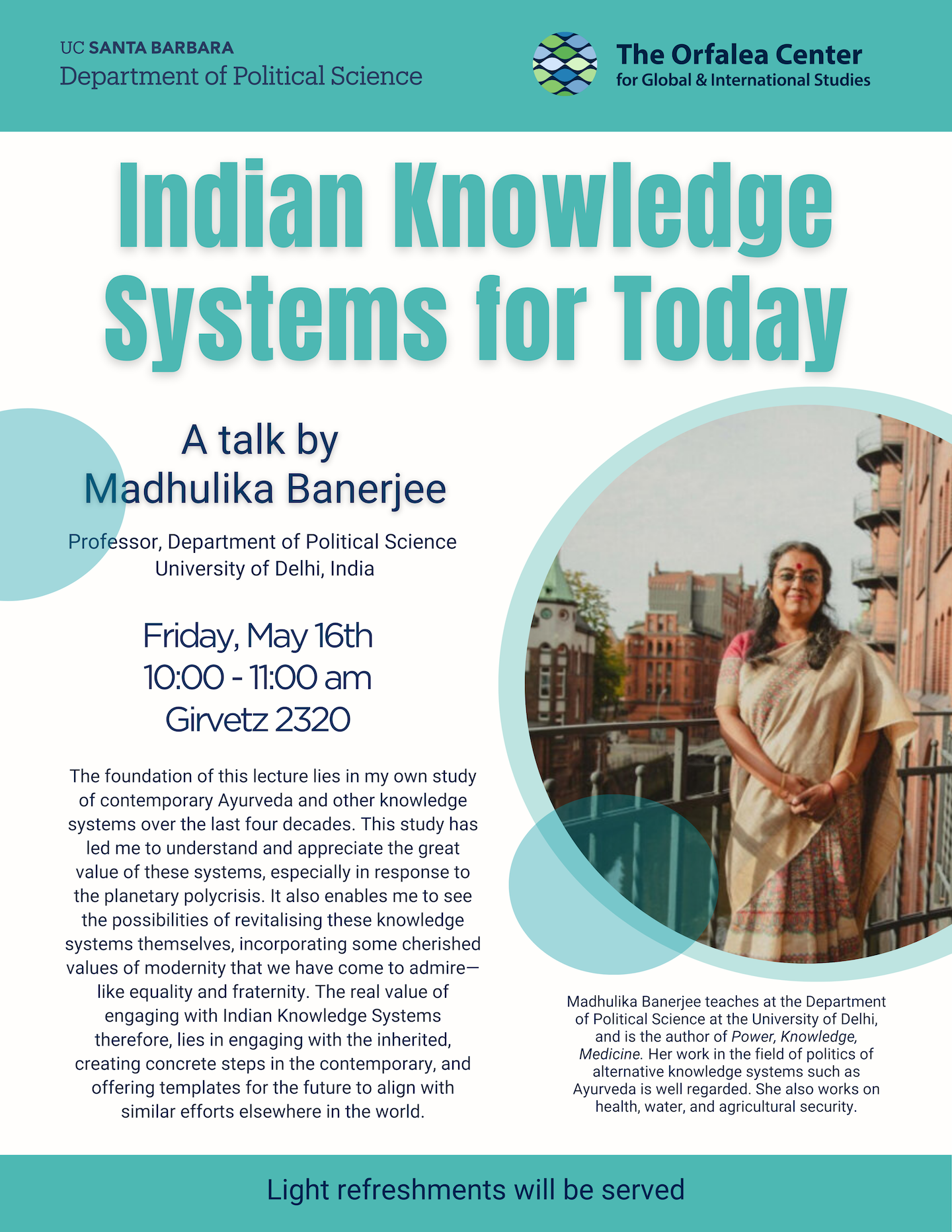
Girvetz 2320
One of the most contentious issues of today is what is now called ‘Indian Knowledge Systems’—promoted vigorously by the Indian state and right of centre intellectuals and greeted equally with disdain, even horror, by the rest. In this lecture, I unpack the positions of both sides, seeking to present for consideration what could be the most valuable position today. I argue that both positions need to be analysed critically, which in academic parlance means looking at different perspectives on a question, albeit from a specific standpoint. This enables an understanding of the entire range of possibilities available from both ends, while proffering a systematic critique of those dimensions that do not hold veracity.
The foundation of this lecture lies in my own study of contemporary Ayurveda and other knowledge systems over the last four decades. This study has led me to understand and appreciate the great value of these systems, especially in response to the planetary polycrisis. It also enables me to see the possibilities of revitalising these knowledge systems themselves, incorporating some cherished values of modernity that we have come to admire—like equality and fraternity. The real value of engaging with Indian Knowledge Systems, therefore, lies in engaging with the inherited, creating concrete steps in the contemporary, and offering templates for the future to align with similar efforts elsewhere in the world.